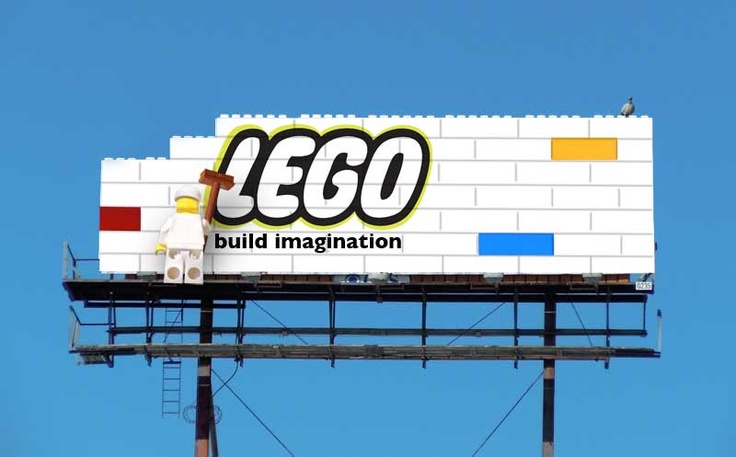LEGO is a globally recognized toy brand known for its interlocking plastic bricks. It was founded in 1932 by Ole Kirk Kristiansen in Billund, Denmark. The name “LEGO” is derived from the Danish words “leg godt,” which mean “play well.” The company initially manufactured wooden toys but shifted its focus to plastic toys in the 1940s and introduced the interlocking brick system in 1958, which laid the foundation for the LEGO we know today.
LEGO bricks are designed to be compatible and can be assembled and connected in various ways, allowing builders to create structures, vehicles, and other imaginative creations. The bricks come in different shapes, sizes, and colors, offering endless creative possibilities. In addition to the classic bricks, LEGO also produces themed sets based on popular franchises, movies, and licensed properties, such as Star Wars, Harry Potter, Marvel, and Disney.
Over the years, LEGO has expanded its product range to include various lines, such as LEGO DUPLO for younger children, LEGO Technic for more advanced builders, LEGO Friends targeted at girls, and LEGO Education for classroom learning. The company has also ventured into video games, movies, and amusement parks, further expanding the LEGO brand’s reach and impact.
LEGO has gained worldwide acclaim for its commitment to quality, innovation, and creativity. The brand values play, imagination, and learning, with an emphasis on fostering cognitive development and problem-solving skills. LEGO sets provide an engaging and educational experience, encouraging children and adults alike to explore their creativity, spatial awareness, and critical thinking abilities.
Today, LEGO is not only a beloved toy but also a cultural icon. Its products are sold in over 140 countries, and LEGO sets have become collectibles cherished by enthusiasts. The LEGO Group continues to innovate, introducing new elements, incorporating technology, and collaborating with popular franchises to keep the brand fresh and appealing to generations of builders.
LEGO’s enduring popularity and iconic status can be attributed to its timeless appeal, commitment to quality, endless creative possibilities, and its ability to bring joy and imagination to people of all ages. The brand’s impact extends beyond play, fostering a sense of nostalgia, community, and shared experiences that have made LEGO a beloved and cherished part of childhood memories for millions around the world.
Success Factors of LEGO – Why is LEGO considered so iconic?
LEGO has captured the hearts and minds of generations worldwide. Since its humble beginnings in 1932, LEGO has become an iconic brand, celebrated for its timeless appeal, unparalleled creativity, and enduring legacy. In this article, we delve into the reasons behind LEGO’s iconic status, exploring how the brand’s commitment to quality, innovation, educational value, and imaginative play has solidified its place in the hearts of children and adults alike.
Quality and Durability: One of the key factors contributing to LEGO’s iconic status is its unwavering commitment to quality. LEGO sets are renowned for their durability, precision, and meticulous attention to detail. The brand’s dedication to using high-quality materials ensures that LEGO bricks can be assembled, disassembled, and reassembled countless times without compromising their structural integrity. This focus on durability has allowed LEGO creations to withstand the test of time, passing down from one generation to the next, fostering a sense of nostalgia and continuity.
Endless Creative Possibilities: LEGO’s iconic status stems from its ability to unlock boundless creativity. The brand’s interlocking brick system provides an infinite universe of possibilities for imaginative play and construction. LEGO sets are designed to encourage open-ended exploration and problem-solving, allowing builders to bring their unique ideas to life. The versatility of LEGO bricks empowers individuals to build structures, vehicles, characters, and entire worlds limited only by their imagination. This freedom of expression and creative empowerment has made LEGO a timeless favorite for builders of all ages.
Educational Value: LEGO’s impact extends beyond play; it also holds significant educational value. The brand seamlessly integrates learning with fun, fostering cognitive development, spatial awareness, fine motor skills, and logical thinking. LEGO sets promote critical thinking and problem-solving as builders navigate through instructions, devise solutions, and experiment with different building techniques. Additionally, LEGO’s educational product lines, such as LEGO Education, provide specialized sets and programs that facilitate learning in classrooms, promoting STEM concepts, teamwork, and creativity.
Universally Appealing Themes: LEGO’s success lies in its ability to adapt to evolving trends and embrace a wide range of themes. From classic LEGO City and LEGO Castle sets to popular licensed themes like LEGO Star Wars and LEGO Harry Potter, LEGO offers a diverse range of sets that cater to various interests and fandoms. By tapping into universally beloved franchises and introducing new and exciting themes, LEGO remains relevant and resonates with both children and adult fans, fostering a sense of connection and engagement.
Engaging Community and Collaborations: LEGO’s iconic status is also attributed to its vibrant community of builders and enthusiasts. LEGO fans, known as AFOLs (Adult Fans of LEGO), form a passionate and dedicated community that celebrates the brand’s creativity and craftsmanship. LEGO actively engages with its community through online platforms, events, and fan conventions, fostering a sense of belonging and shared enthusiasm. Moreover, LEGO collaborates with external partners and franchises to create special edition sets, promoting cross-brand collaborations that ignite excitement among fans and collectors.
Design Excellence: LEGO’s iconic status can be attributed to its impeccable design. The brand invests considerable effort in creating aesthetically pleasing and functional sets. LEGO designers meticulously craft each brick, ensuring precision, compatibility, and ease of use. The attention to detail extends beyond the bricks themselves to encompass the packaging, instructions, and overall presentation, enhancing the overall user experience. LEGO’s commitment to design excellence ensures that every set captures the imagination and delivers a satisfying building experience.
Cross-Generational Appeal: LEGO’s enduring appeal lies in its ability to transcend generations. It is a brand that resonates with both children and adults. Many adults fondly recall their childhood experiences with LEGO, fostering a sense of nostalgia that often leads to continued engagement with the brand. LEGO’s ability to create sets that appeal to different age groups, from DUPLO for toddlers to complex Technic sets for advanced builders, ensures that there is something for everyone, regardless of their age or skill level.
Licensing and Partnerships: LEGO’s strategic partnerships with popular franchises, movies, and brands have played a significant role in its iconic status. Collaborations with franchises like Star Wars, Marvel, Harry Potter, and Disney have resulted in LEGO sets that bring beloved characters and scenes to life. These licensed sets tap into the fan bases of these franchises, combining the appeal of both LEGO and the licensed property, and creating a powerful synergy that resonates with fans around the world.
Innovative Marketing and Branding: LEGO’s marketing efforts have been instrumental in solidifying its iconic status. The brand’s advertising campaigns often emphasize the imaginative play and creative possibilities that LEGO offers. LEGO commercials and print advertisements showcase the joy of building, the limitless potential of LEGO bricks, and the sense of accomplishment that comes with completing a set. LEGO’s consistent branding, recognizable logo, and iconic minifigures have become synonymous with the brand, further contributing to its iconic status.
Global Reach and Distribution: LEGO’s global distribution network is another key aspect of its success. The brand has a presence in over 140 countries, making its products widely accessible to consumers worldwide. LEGO sets are available in toy stores, department stores, and online retailers, ensuring that people from diverse backgrounds can experience the joy of LEGO. The brand’s global reach has enabled it to become a household name and foster a global community of LEGO enthusiasts.
Continuous Innovation: LEGO’s commitment to innovation has been instrumental in its iconic status. The brand continually introduces new elements, building techniques, and play experiences to keep its offerings fresh and exciting. From introducing advanced motorized functions in Technic sets to incorporating augmented reality and interactive elements in LEGO sets, the brand embraces technology and trends to enhance the LEGO experience. This dedication to innovation ensures that LEGO remains relevant in a rapidly evolving toy industry.
In conclusion, LEGO’s iconic status is a culmination of factors such as its commitment to quality, endless creative possibilities, cross-generational appeal, strategic partnerships, innovative marketing, global reach, and continuous innovation. Through these efforts, LEGO has built a brand that fosters imagination, encourages learning, and brings joy to millions of individuals worldwide, solidifying its position as an iconic and beloved toy brand.
Also Read: The Swoosh Legacy: Nike’s Glorious History and Iconic Brand Elements
To read more content like this, subscribe to our newsletter



